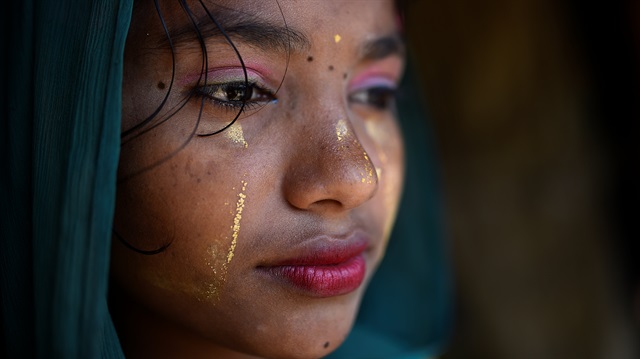
Migration body's chief asks world to recognize role played by Bangladesh in resolving crisis
The International Organization for Migration (IOM) said Rohingya refugees in Bangladesh are facing a triple threat of extreme weather, funding shortfalls and uncertainty about their future.
Head of the UN Migration Agency William Lacy Swing said late on Tuesday it was crucial for the world to remain focused on the crisis.
"Failure to do so would have tragic outcomes for the nearly a million Rohingya refugees sheltering in Bangladesh," said the director general of the UN Migration Agency in a statement.
He made the remarks after reviewing progress by IOM and their partners in managing the refugee settlement in Cox’s Bazar, discussions with Bangladeshi Prime Minister Sheikh Hasina in capital Dhaka, and an earlier meeting with Myanmar’s State Counsellor Aung San Suu Kyi.
“The Rohingya in Cox’s Bazar are in danger of becoming the wretched of the earth, homeless and without a future,” he said.
“The world must rally to support them.
“All mothers – refugees and locals – should have access to safe, hygienic facilities to give birth and it’s profoundly worrying that funding shortages are now threatening these crucial maternity services which are making such differences to the lives of women and babies from all backgrounds.
“The world must recognize the hugely generous support that the Bangladesh government and host community here in Cox’s Bazar has offered these refugees who arrived in such desperate conditions with nothing.”
Since Aug. 25, 2017, some 750,000 Rohingya, mostly children and women, have fled to bordering Bangladesh after Myanmar forces began a crackdown on the minority Muslim community, according to Amnesty International.
At least 9,400 Rohingya were killed in Myanmar's Rakhine state from Aug. 25 to Sept. 24, 2017, according to Doctors Without Borders.
In a report published last December, the global humanitarian group said the deaths of 71.7 percent or 6,700 Rohingya were caused by violence. They include 730 children below the age of 5.
The Rohingya, described by the UN as the world's most persecuted people, have faced heightened fears of attack since dozens were killed in communal violence in 2012.
The UN has documented mass gang rapes, killings -- including of infants and young children -- brutal beatings, and disappearances committed by security personnel. In a report, UN investigators said such violations may have constituted crimes against humanity.











